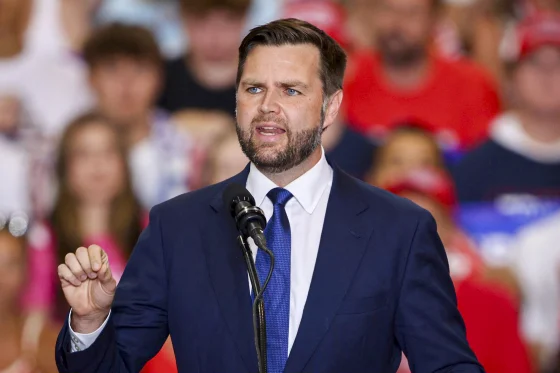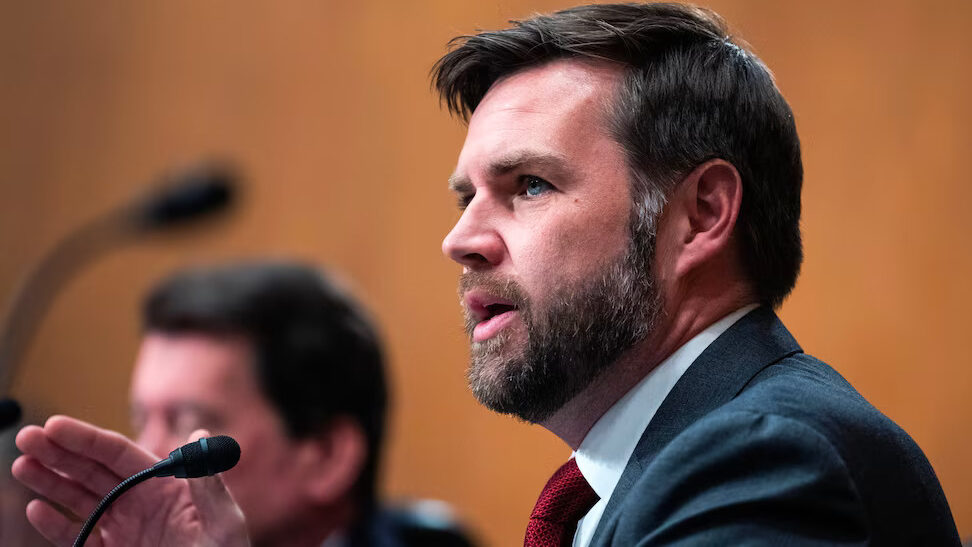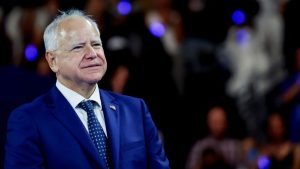On Wednesday, Republican vice presidential candidate Senator JD Vance (R-Ohio) made headlines with a cautionary message to Democrats. Speaking with reporters in North Carolina, Vance urged Democrats to “pump the brakes” on their rhetoric surrounding former President Donald Trump.
His comments come as a response to the heightened political rhetoric observed at the Democratic National Convention (DNC) this week. Vance expressed concern that the increasing intensity of anti-Trump speeches might provoke dangerous reactions.
“So, I hope that they remember when you tell the American people that this guy must be stopped at all costs, most people are going to respond to that reasonably, some people are going to take crazy actions and take matters into their own hands,” JD Vance warned.
His plea is grounded in the belief that inflammatory rhetoric could lead to real-world consequences, including violent actions by individuals who might feel compelled to act on extreme sentiments.
Democrats’ Heightened Rhetoric at the DNC
Vance’s remarks highlight a growing tension in American politics as the Democratic National Convention has seen some of its prominent speakers deliver scathing critiques of Trump. Former President Barack Obama and other DNC speakers have intensified their criticisms of Trump, framing him as a significant threat to American democracy.

This increased rhetoric is part of a broader strategy to galvanize Democratic voters and underscore the stakes of the upcoming election. Rep. Jamie Raskin (D-Md.), known for his role on the Jan. 6 select committee, further fueled the debate with his Monday night speech. Raskin referenced the January 6 Capitol attack and the threats faced by former Vice President Mike Pence.
His remarks included a pointed comment about GOP voters trying to “kill your predecessor,” linking current political tensions to past violence. The response from the Trump campaign was swift, accusing Raskin of politicizing discussions about violence, especially given the recent assassination attempt on Trump.
The Impact of Rhetoric on Political Safety
Vance’s call for Democrats to moderate their language reflects a concern about the impact of political discourse on public safety. He acknowledged that Democrats had previously toned down their rhetoric following the assassination attempt on Trump last month, suggesting that the political climate had shifted.
However, JD Vance argued that the tone of recent speeches at the DNC indicates that Democrats might be reverting to a more aggressive stance. JD Vance commended Trump for his response to the assassination attempt, noting that Trump chose to call for national calm and unity rather than escalating the situation “I mean, he had every right to stand up after he was shot in the ear and get really pissed off and blame the Democrats,”.
Vance said. “And what he instead did was call for national calm and national unity.” Vance’s comments underscore his belief that Trump’s measured response helped to lower the political temperature, contrasting it with what he perceives as a more incendiary approach by some Democrats.
The Debate Over Political Rhetoric
The debate over political rhetoric and its potential consequences is central to current discussions in American politics. Vance’s comments reflect a broader concern that inflammatory language can have unintended and dangerous outcomes.
While some argue that strong rhetoric is necessary to confront perceived threats, others, like Vance, believe that moderation is essential to prevent incitement to violence. As the election approaches, the tone of political discourse will continue to be a critical issue.
Vance’s call for Democrats to reconsider their rhetoric is part of a larger conversation about the responsibilities of political leaders in shaping public dialogue. The balance between vigorous debate and responsible communication is crucial in maintaining both democratic engagement and public safety.
Looking Ahead: The Role of Political Speech
In summary, JD Vance’s plea for Democrats to “pump the brakes” on their rhetoric underscores the complex relationship between political speech and public safety. As the DNC continues and the political climate evolves, the impact of rhetoric on voter sentiment and security remains a significant concern.
The balance between passionate political expression and the need for caution will be a defining issue as the election campaign unfolds. Comments by JD Vance reflect ongoing tensions and highlight the need for a thoughtful approach to political discourse.
As both parties navigate this contentious period, the broader implications of their rhetoric will continue to shape the political landscape and influence voter perceptions leading up to the election.





